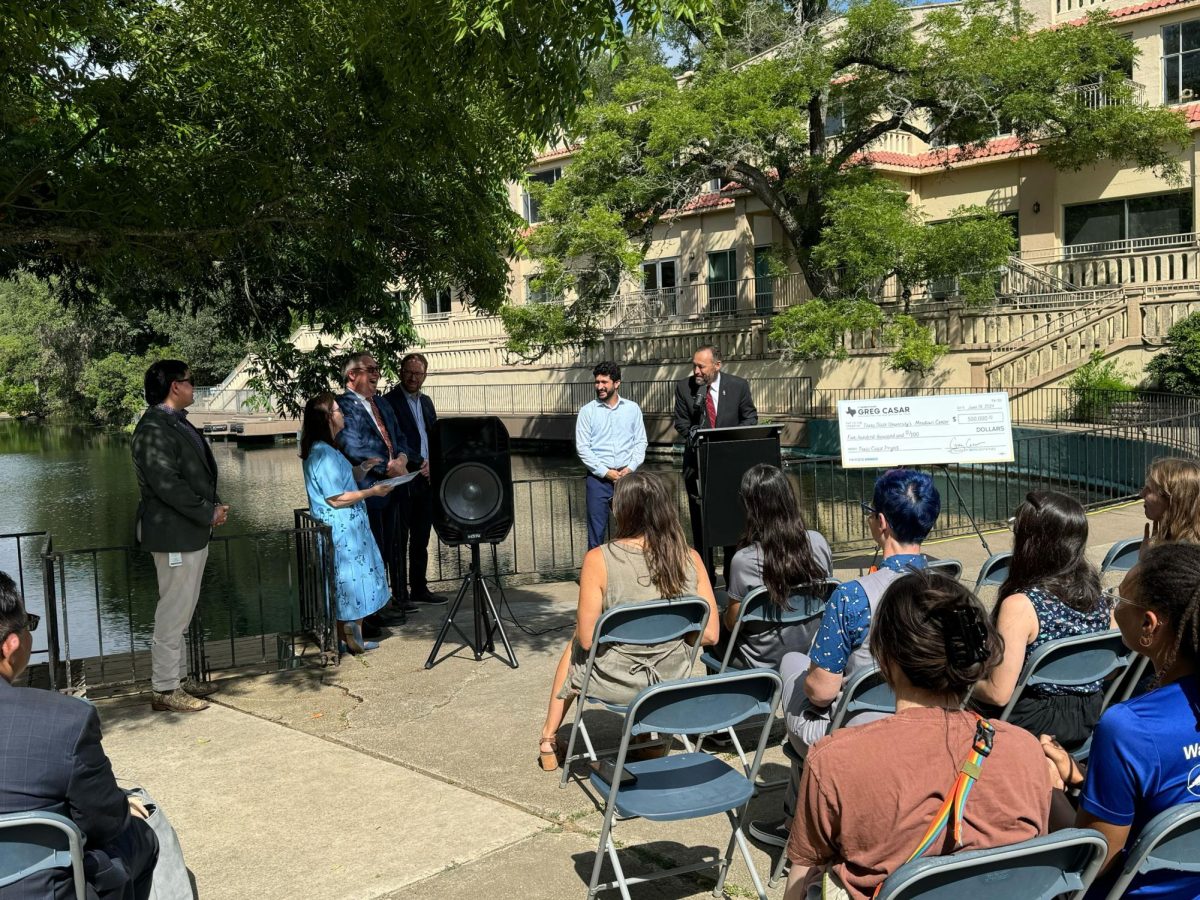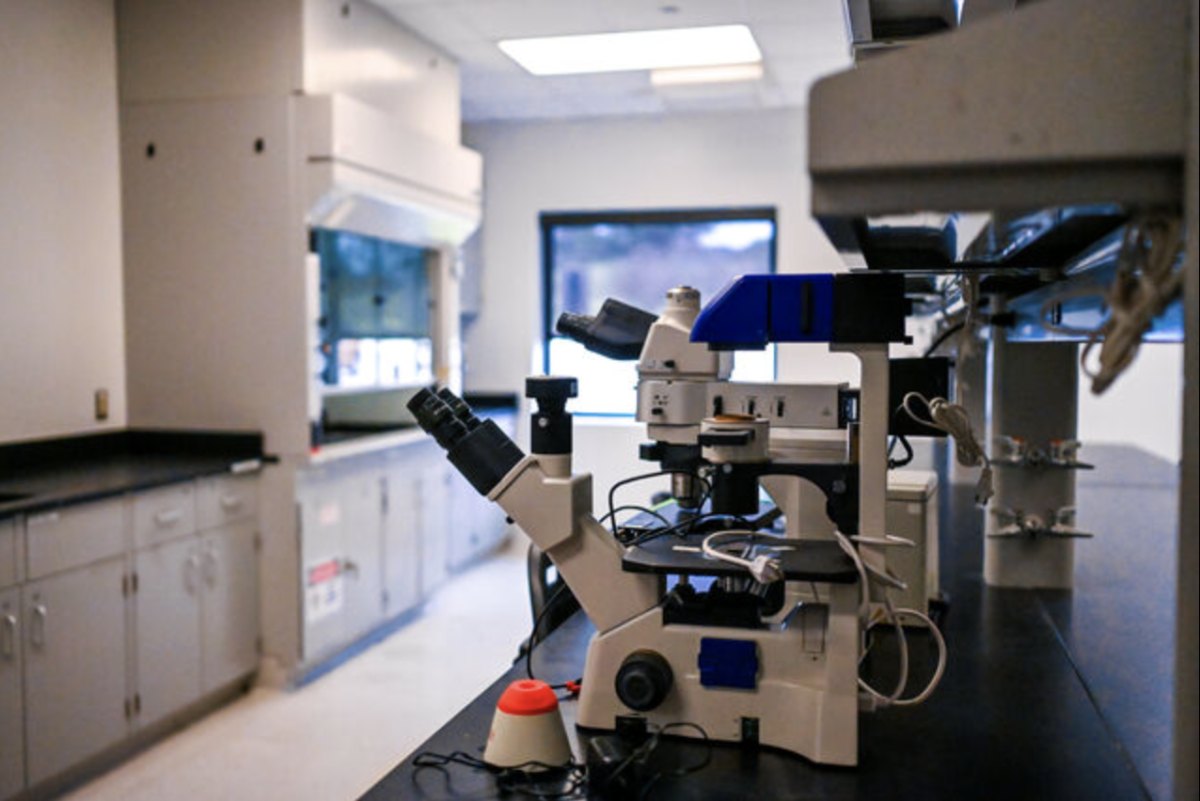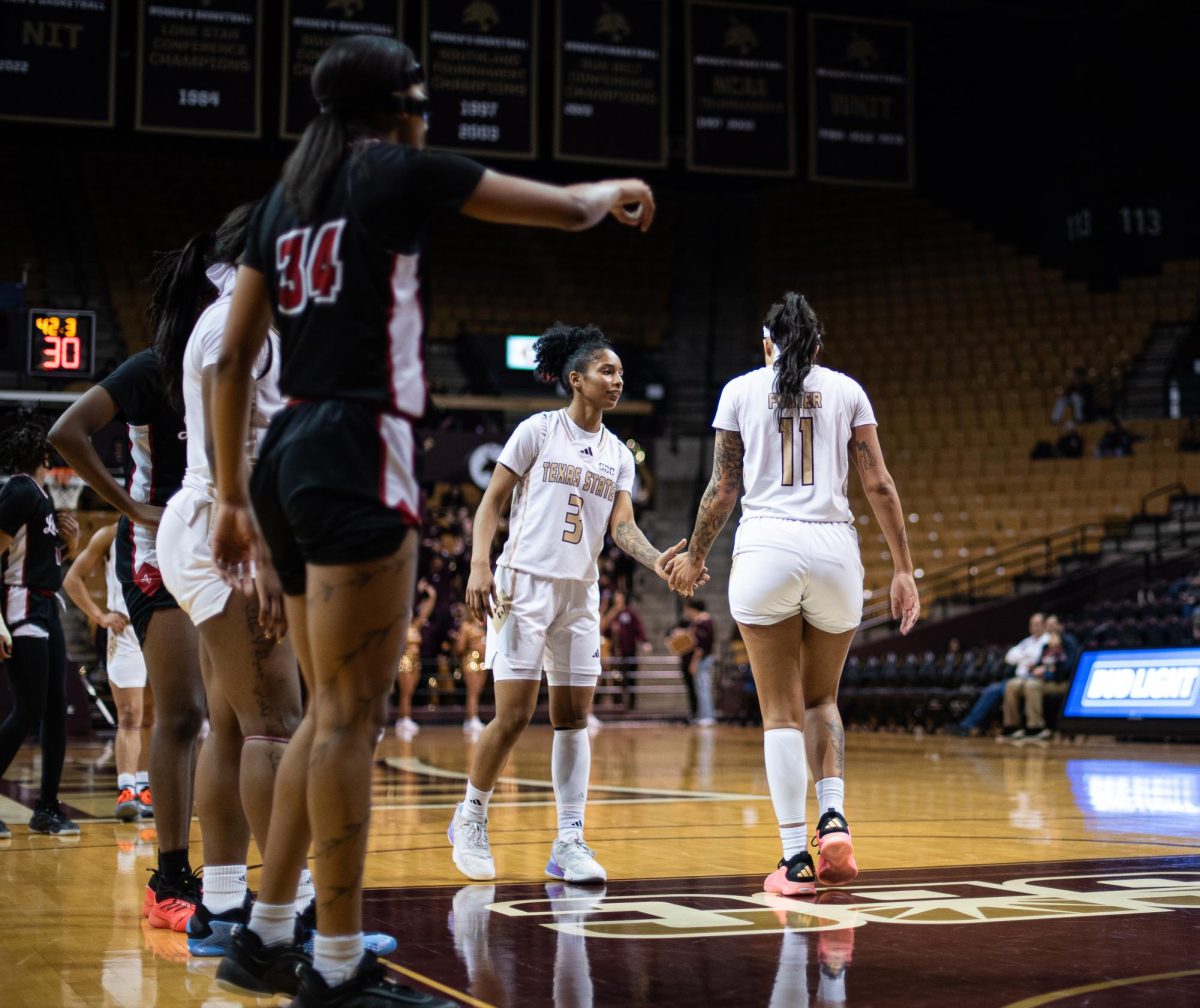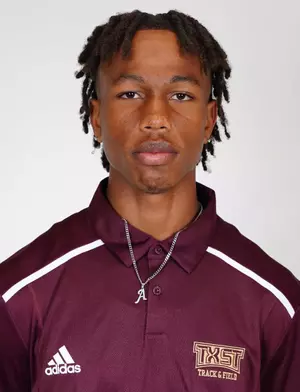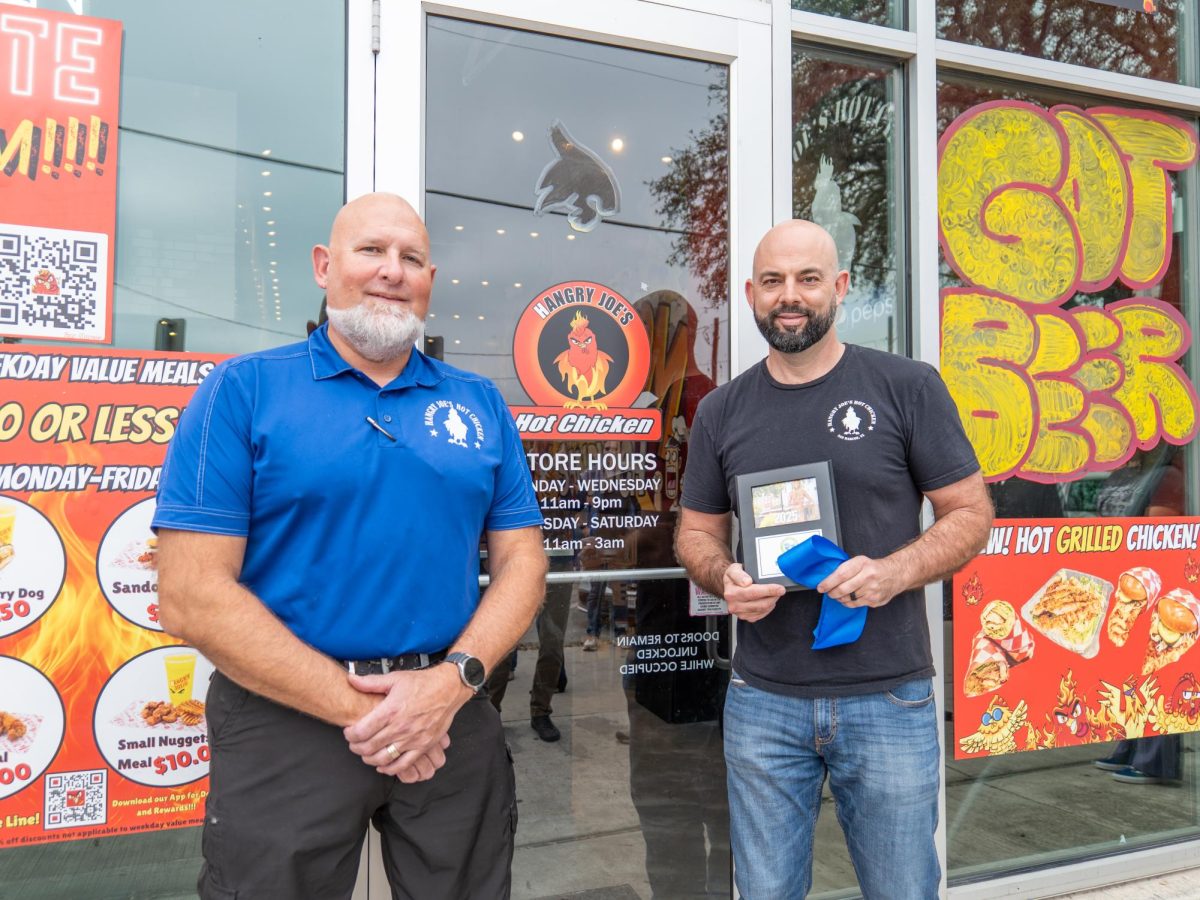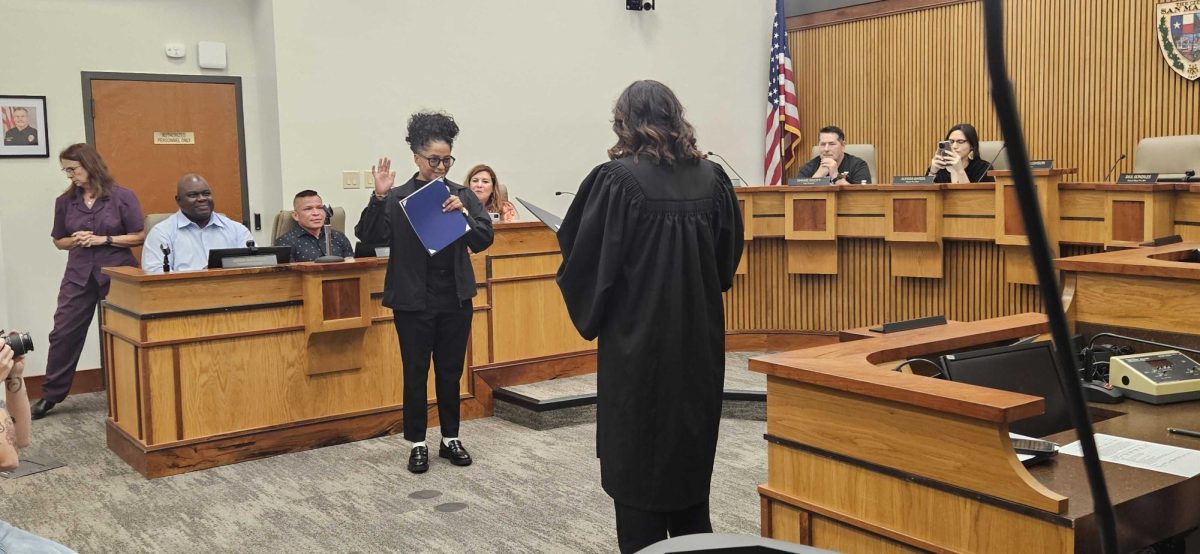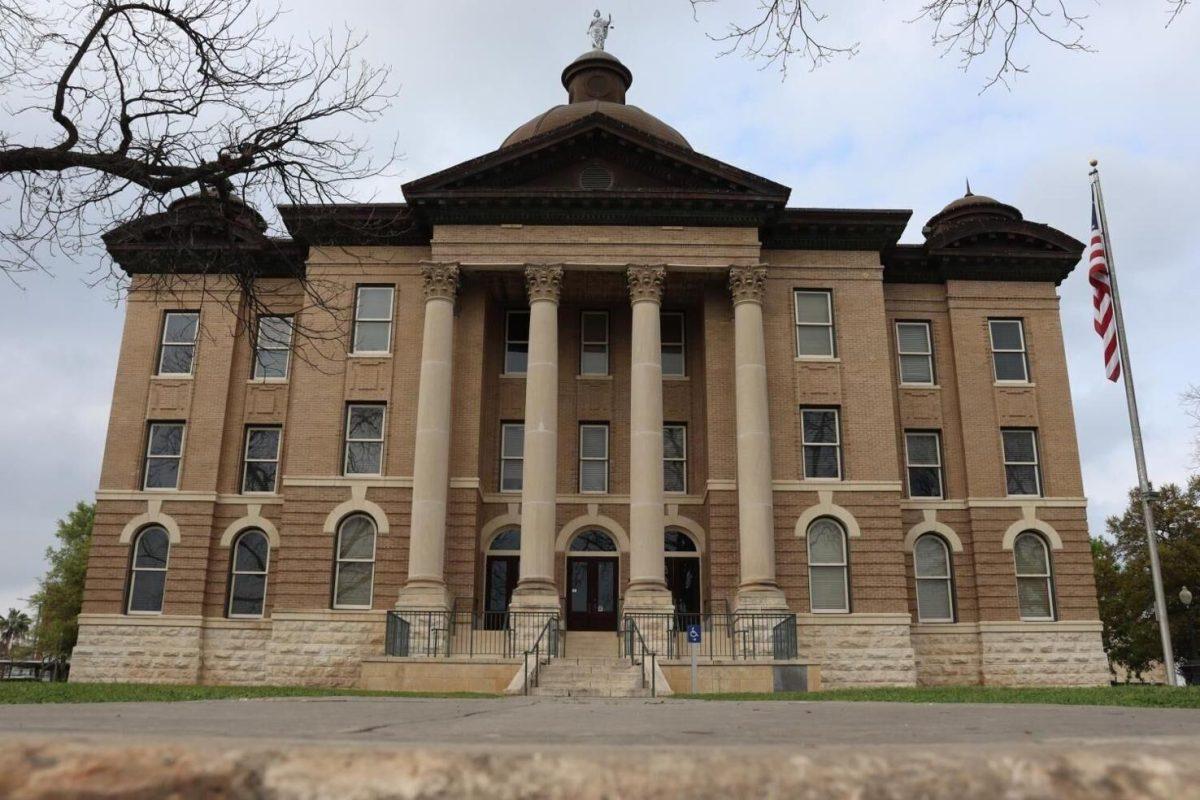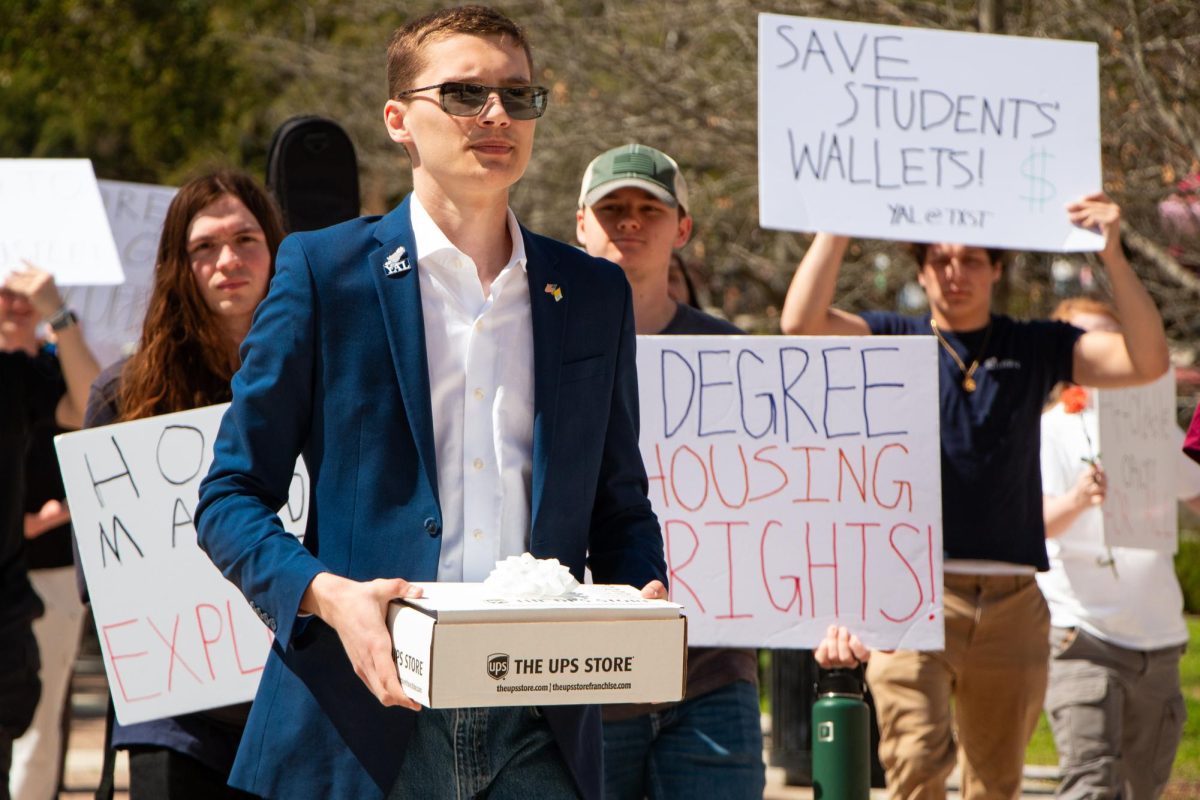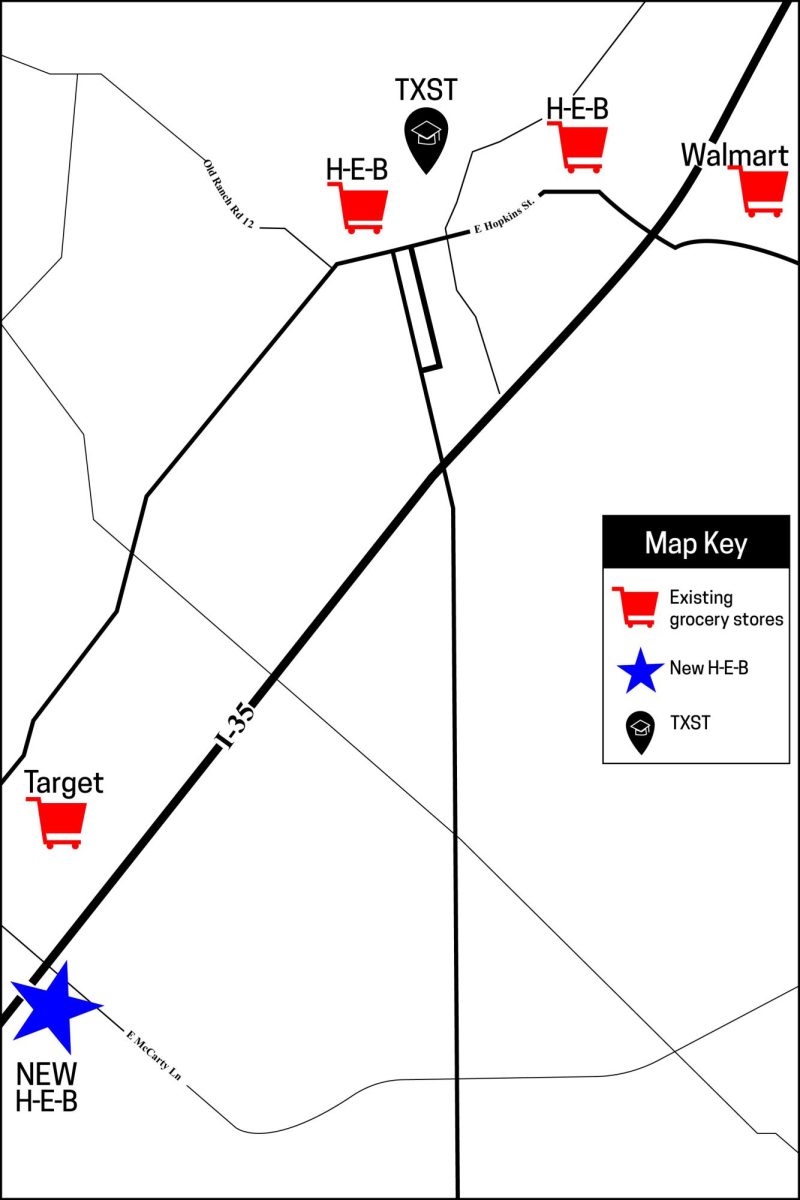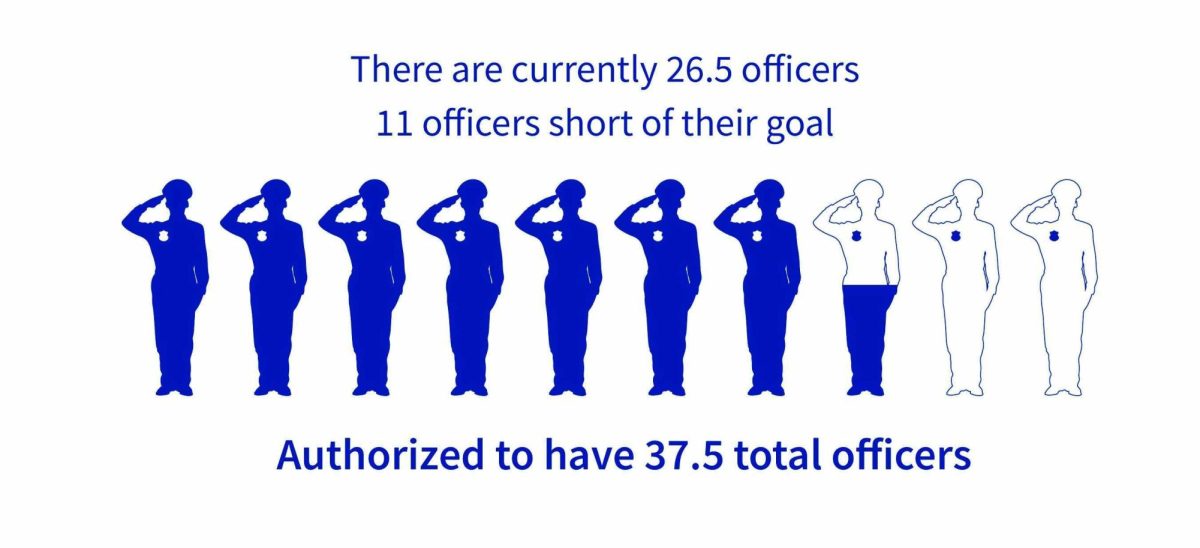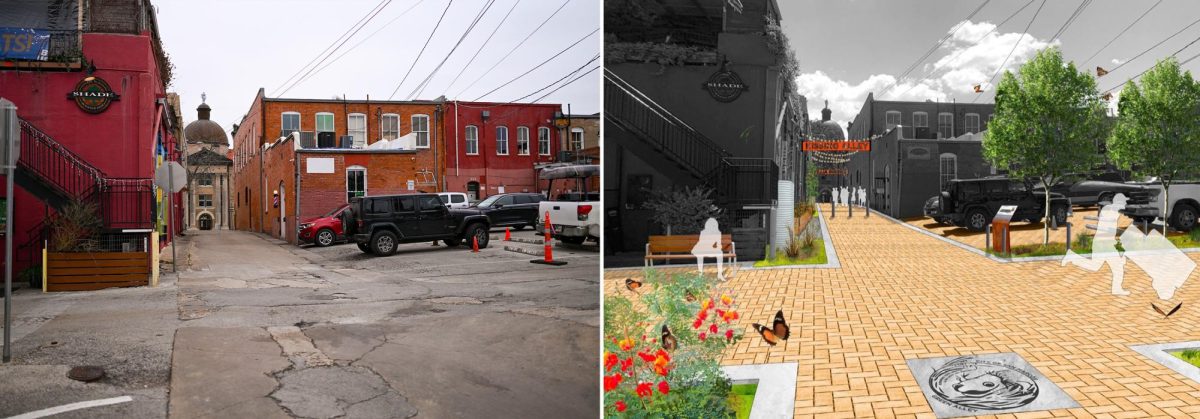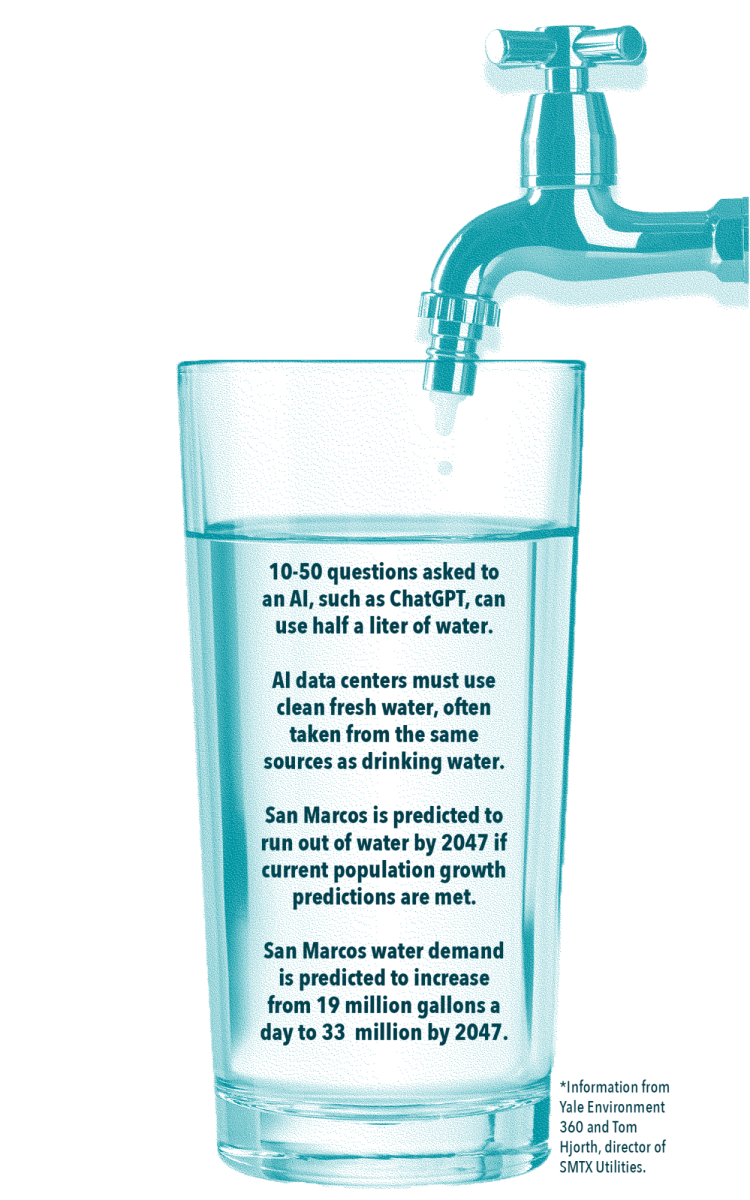The Meadows Center for Water and the Environment received a $500,000 grant which will go toward developing Artificial Intelligence (AI) data analysis tools.
Representative Greg Casar presented the grant on June 18 in an outdoor press conference at Spring Lake that featured speeches by Texas State President Kelly Damphousse, San Marcos Mayor Jane Hughson, Meadows Center Director Robert Mace and Casar.
The new grant money, which according to Casar came from the national congressional budget, will be used to create AI tools powerful enough to recognize dangerous levels of pollution in waterways.
According to Mace, the new tools will be used to analyze levels of pollutant fecal caliform, a water contaminant that causes waterways to become unsafe, in the San Marcos River.
“Right now, [to measure levels] you have to take a sample, culture it and then count … and that could be days to a week to do that,” Mace said. “What we’re trying to do is develop a tool that takes real-time… environmental information and relate it to people.”
Mace said leaks in poorly maintained sewage systems contribute to higher levels of fecal coliform in San Marcos waterways.
“[Sewage] pipes can leak along the way, introducing contaminants into the environment,” Mace said. “In rural areas, sewage is often handled by [underground] septic systems… older or poorly maintained septic systems can introduce contaminants into the environment, especially in coastal areas.”
Casar said the research that occurs at the Meadows Center will help create safer access to rivers and waterways.
“We want a future where you can just go jump in the San Marcos River. Not one where the beaches start getting closed or the water starts drying up [or] isn’t safe to be in,” Casar said.
Damphousse said this funding is part of the process of making Texas State an R1 research institution.
“[The grant] will enhance our research capacity [and] also helps to build our brand as a research university,” Damphousse said. “I think sometimes people think of Texas state as just a teacher school, but we have a lot of world-class research is going on here.”


